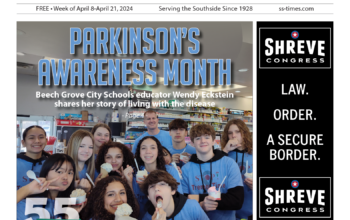By Curtis Honeycutt
I like to think of myself as a logical person, but as I dig into the English language, I find that much of our language is nonsense. English is a mutt of a language that breaks more rules than it keeps. Sometimes “y”? Make up your mind, “y”! Pick a side!
While English may not be logical, I get a kick out of autological words. An autological word is a word that describes itself. Before you feel like you’re in a room full of infinite mirrors or that we’re headed straight into a scene from “Inception,” I know saying “a word that describes itself” sounds strange. It is strange; that’s why I want you to know about it!
Let’s start with the word “word.” The word “word” is a word. So, the word “word” describes what it is – a word. Are you hanging on my every word yet?
I’m going to jump right into the deep end with this next example. The word is “recherché.” This word means “exotic, rare, obscure, elegant or pretentious.” If you use the word recherché, you may be a bit pretentious yourself.
The word “noun” is a noun. Remember how a noun can be a person, place, thing or idea? A noun is a thing, which makes noun a noun.
One of my favorite autological words is “sesquipedalian,” which means a long, polysyllabic word. Polysyllabic, too, is an autological word.
Unhyphenated is unhyphenated. Don’t hyphenate it.
The word “sibbilant” refers to a word having a harsh “s” or “sh” hissing sound. You can imagine a snake hissing the word: s-s-s-sibbilant.
On the other side of the coin, we have heterological words. If autological words describe themselves, heterological words do not describe themselves. For instance, the word “misspelled” is not misspelled, although it’s easy to misspell it.
The word “French” isn’t French; it’s English. In French, the word French is français, including the “c” with the tail on it (called a cedalia).
“Monosyllabic” is polysyllabic, while “long” is short. If you’re feeling dizzy, you’re not alone in this “up is down, down is up” language excursion.
Although “unhyphenated” is an autological word, the words “non-hyphenated” and “hyphenated” are heterological words. Non-hyphenated is hyphenated, while hyphenated is not.
Just when you think you’ve got English figured out, it throws a curveball right at your shin. If I were a bartender, I’d tell English to go home because it’s drunk. And, while the word “verb” is a noun, “four” is still a four-letter word.

